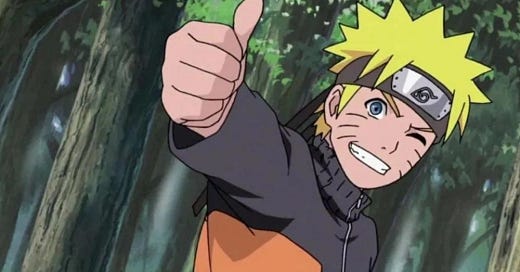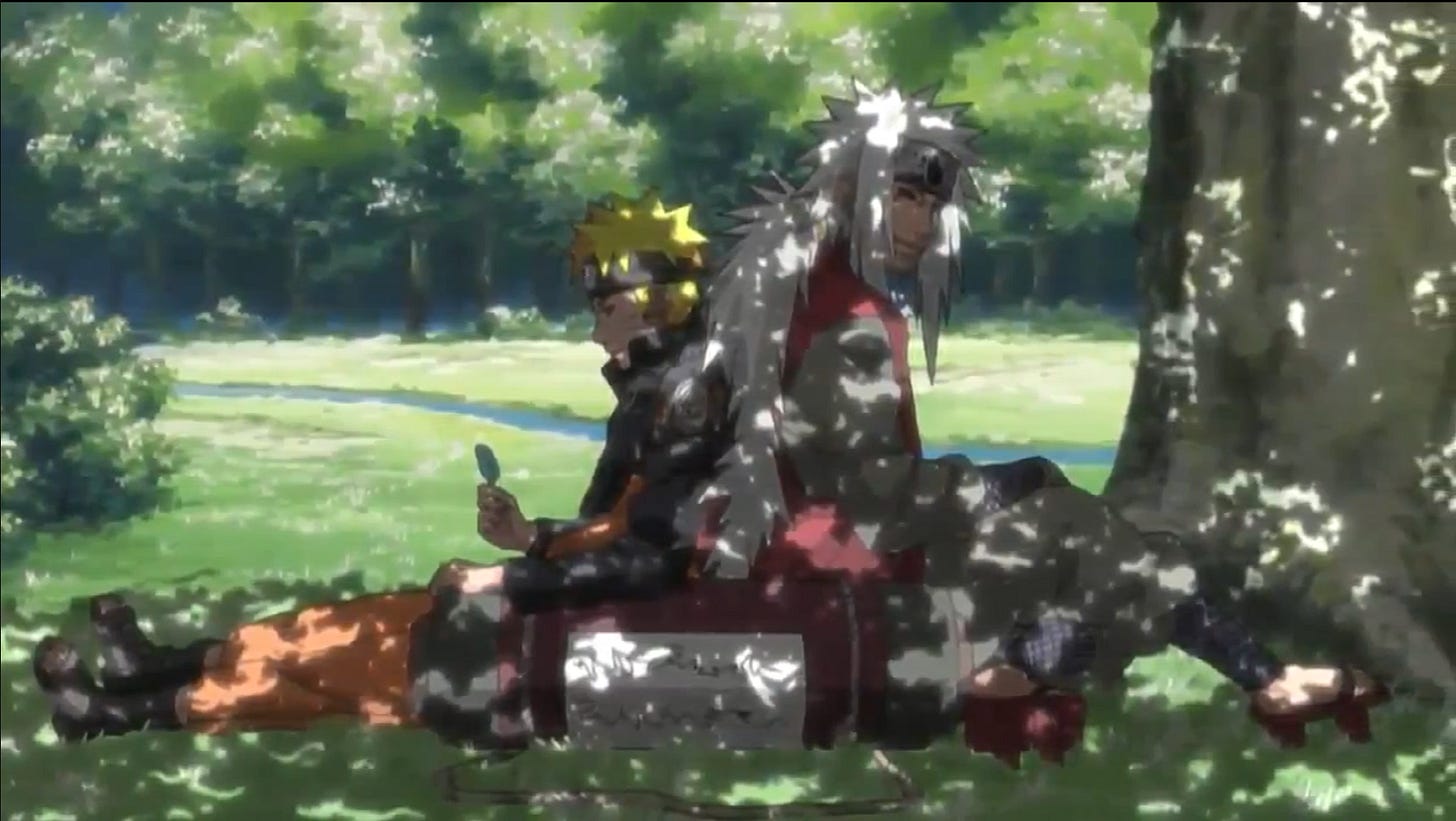Modern superhero media, from The Boys to Deadpool, is obsessed with the anti-hero. I militate against this unhealthy, unwholesome obsession. I believe people’s affinity for anti-heroes reflects a nihilistic morality, i.e., nobody can be completely good so there’s no point in even trying. Some of these anti-hero fetishists go so far as to believe that one is naive to even attempt to maintain one’s integrity in our world—a world seen, incorrectly, as fundamentally corrupt and corrupting.
What a pessimistic, cynical, and pitiful view of the world!
One of my favorite shows of all time, Naruto: Shippuden, pushes back against the notion that anti-heroes are more realistic, relatable, and laudable than heroic do-gooders. Naruto Uzumaki, the show’s protagonist, squares off against foils throughout the show’s many seasons. All of these villains are, to a great and deliberate degree, the conclusion of paths Naruto himself could have walked.
After suffering great personal loss, Sasuke, Nagato, and Obito each choose to foresake the world and scheme to destroy it in creative ways. Naruto, not exempt from the problem of evil and the calamities of chance, grew up without parents, rejected by his peers, abhorred by the townsfolk, feared by all for a powerful demon sealed inside him, and eventually suffers the loss of his dearest mentor and friend: Jiraiya Sensei.
Yet, despite all of these misfortunes, Naruto never sacrifices his goodness or his belief in the goodness of others. In fact, it is Naruto’s ceaseless commitment to the good that makes him so powerful; instead of killing Sasuke, Nagato, and Obito, it is Naruto’s example of goodness in the face of evil and extreme personal adversity that inspires each to turn back to the light. Naruto’s purity of spirit is paralleled by another amazing character, Rock Lee, who deserves his own post. For now, I will tease Lee’s goodness and determination by referring readers to the following clip:
Other do-gooders in popular media include Clark Kent (Superman), Peter Parker (Spider-Man), Obi-Wan Kenobi, Steve Rodgers (Captain America), Neo (Mr. Anderson). The moral purity of these characters ought to be viewed as inspirational, aspirational, and achievable. Of course, human beings fail constantly to live up to the ethical standard set by these characters in ways great and small. Oftentimes, particularly for young people, virtue is the remote effect of vice.1 In the words of Aerosmith’s Steven Tyler, “you gotta lose to know how to win.” I certainly don’t mean to diminish the serendipity of goodness spawning from badness—this is exactly what Naruto achieves with Sasuke, Nagato, and Obito.
Nonetheless, we cannot lose sight of the goal: to perfect one’s virtues, diminish one’s vices, and become the most consistent do-gooder one can be. The goal is not to remain a morally conflicted, confused, middling mess. In The Divine Comedy, Dante Alighieri properly places such grey characters outside hell proper, damned to run tirelessly after a wandering banner while plagued by hornets. In the immortal word’s of Rush, “If you choose not to decide, you still have made a choice!”
I am borrowing, yet again, from the brilliant Adam Smith.





